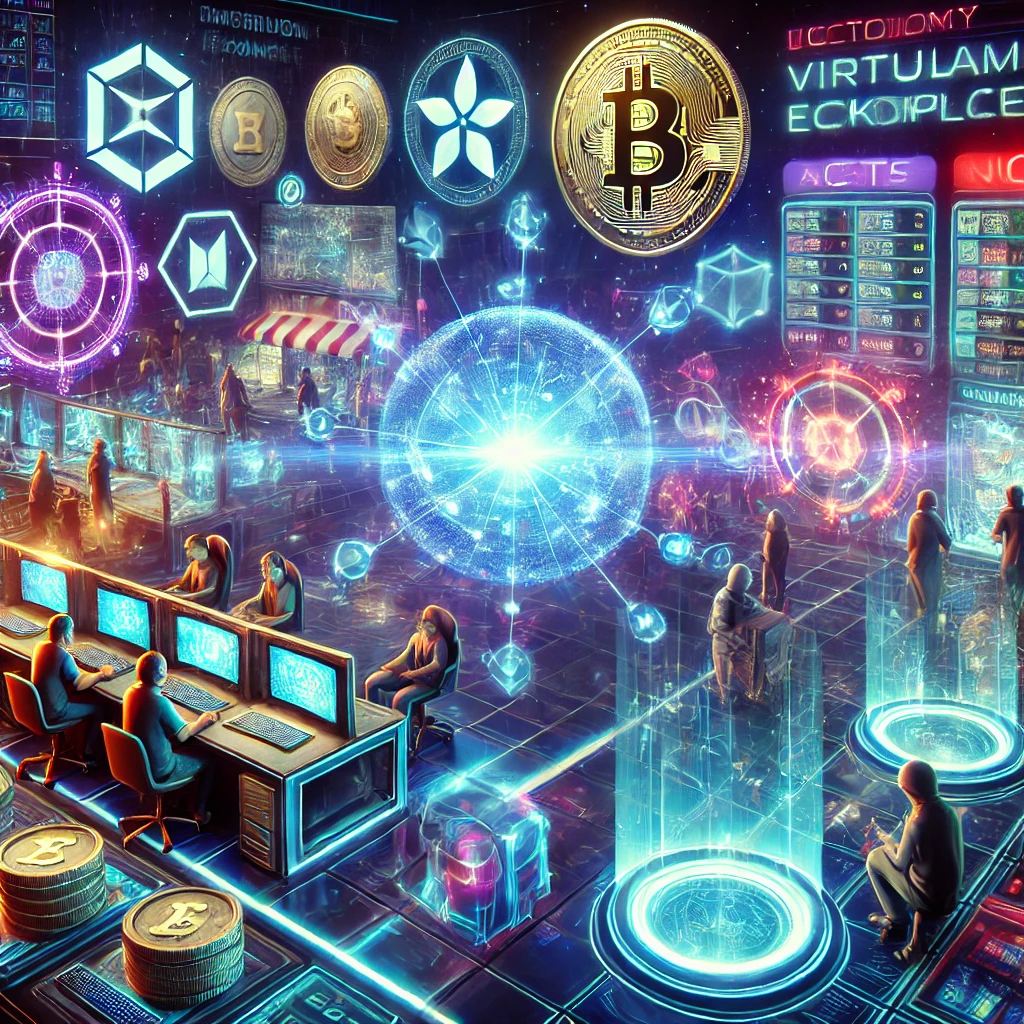The emergence of online gaming has transformed how individuals engage, compete, and even conduct trade. These games have evolved beyond mere entertainment, now featuring bustling virtual economies where players exchange goods, services, and even real money. This fusion of gaming and commerce has sparked new industries, created job opportunities, and raised ethical questions.
In this piece, we will delve into the workings of virtual economies, their effects on real-world trade, and what lies ahead for these digital marketplaces.
1. What Is a Virtual Economy?
A virtual economy exists within a digital space, often in video games, where players trade in-game items, currency, and services. Transactions can involve:
- In-game currency: Players earn or buy coins, credits, or other units through gameplay or with real money.
- Real money: Virtual items can be bought or sold for cash via external platforms or in-game markets.
- Barter systems: Players can trade items or services directly with each other.
Many popular games, such as massive multiplayer online games (MMOs) like World of Warcraft, and sandbox games like Roblox and Minecraft, feature virtual economies. Some of these economies have grown so large that they rival the GDP of small countries, highlighting their economic importance.
2. The Mechanics of Virtual Economies
Game developers create virtual economies to boost player engagement and generate revenue. These economies operate like real markets, driven by supply and demand, scarcity, and player interactions.
Key Components of Virtual Economies:
- Scarcity and Value: Rare items, such as legendary weapons or unique skins, are highly valued due to their limited supply.
- Player-Driven Markets: In games like EVE Online, players can set prices and control supply chains, influencing the economy.
- Microtransactions: Developers earn money through in-app purchases of virtual items, ranging from cosmetic changes to functional upgrades.
- Auction Houses and Marketplaces: These in-game platforms allow players to buy, sell, and trade items, with prices fluctuating based on demand.
These elements create immersive experiences, making the game’s world feel vibrant and dynamic.
3. Real-World Impact of Virtual Economies
The merging of virtual economies with real-world trade has led to a multi-billion-dollar industry. Here are some ways these economies are reshaping commerce:
In-Game Item Markets
Players can make significant income by trading virtual goods. Examples include:
- CS:GO Skins: Players trade rare weapon skins for thousands of dollars on platforms like Steam or third-party sites.
- World of Warcraft Gold: Players buy and sell in-game currency for real money, supporting a global gold farming industry.
Professional Gaming Careers
Virtual economies have spawned various career paths, such as:
- Streamers and Content Creators: Gamers who earn money by showcasing rare items or teaching trading strategies.
- Virtual Merchants: Players who profit from buying and selling in-game items.
- Game Economists: Experts hired by gaming companies to design and manage virtual economies.
Cross-Border Trade
Virtual economies have established global markets that surpass traditional borders. Players from different countries trade effortlessly, challenging existing trade regulations and tax policies.
4. The Rise of Play-to-Earn (P2E) Models
Play-to-Earn (P2E) games have further advanced virtual economies, allowing players to earn real income by playing. Popular P2E games like Axie Infinity and The Sandbox use blockchain to tokenize in-game assets, enabling players to:
- Earn cryptocurrency: Players receive digital currency for completing tasks.
- Trade digital assets: Players can sell or rent assets on decentralized marketplaces.
- Build wealth: Players can accumulate wealth within these virtual ecosystems.
These developments signify a new era in gaming, where the lines between virtual and real economies continue to blur. For many players, particularly in developing regions, P2E (Play-to-Earn) games have become a practical way to earn money.
5. Ethical and Regulatory Issues
The expanding influence of virtual economies brings up significant ethical and regulatory concerns:
Economic Inequality
Similar to real-world markets, virtual economies can increase disparities. Wealthier players might dominate by purchasing rare items or benefiting from microtransactions.
Fraud and Scams
The absence of regulation in virtual economies has led to problems such as:
- Item Duplication: Exploits that generate fake items, disrupting market stability.
- Account Hacking: Cybercriminals target valuable player accounts to steal items and in-game currency.
Taxation and Legal Uncertainty
Governments are still figuring out how to tax virtual earnings. For instance:
- Should income from selling in-game items be taxable?
- How should international transactions be regulated?
These issues highlight the necessity for clear guidelines as virtual economies grow.
6. The Future of Virtual Economies
The development of virtual economies shows no signs of slowing. Here are some trends shaping their future:
Integration with the Metaverse
The rise of the metaverse—a combined virtual space of gaming, social media, and commerce—will likely broaden the scope of virtual economies. On platforms like Decentraland, players already purchase virtual properties and goods, setting the stage for more complex economic systems.
Blockchain and NFTs
Blockchain technology is making virtual economies more transparent and secure. NFTs (Non-Fungible Tokens) enable players to own and trade unique digital assets, ensuring authenticity and rarity.
AI-Driven Economies
AI has the potential to transform virtual economies by:
- Predicting market trends and player behavior.
- Managing in-game inflation and balancing item availability.
Blurring Real and Virtual Worlds
As AR (Augmented Reality) and VR (Virtual Reality) technologies advance, virtual economies might integrate more seamlessly with real-world trade. Imagine using in-game currency to purchase real-world products or earning rewards in one game that can be used in another.
Conclusion
Virtual economies are not just a byproduct of online gaming—they are a transformative force reshaping how we trade and interact. From creating global markets to new career opportunities, these digital ecosystems are redefining 21st-century commerce.
As virtual economies expand, they bring both exciting opportunities and complex challenges. Balancing innovation with ethical considerations will be crucial to ensuring these economies benefit players, developers, and society as a whole. Whether you’re a casual gamer or a seasoned trader, the world of virtual economies is a captivating space to explore.
